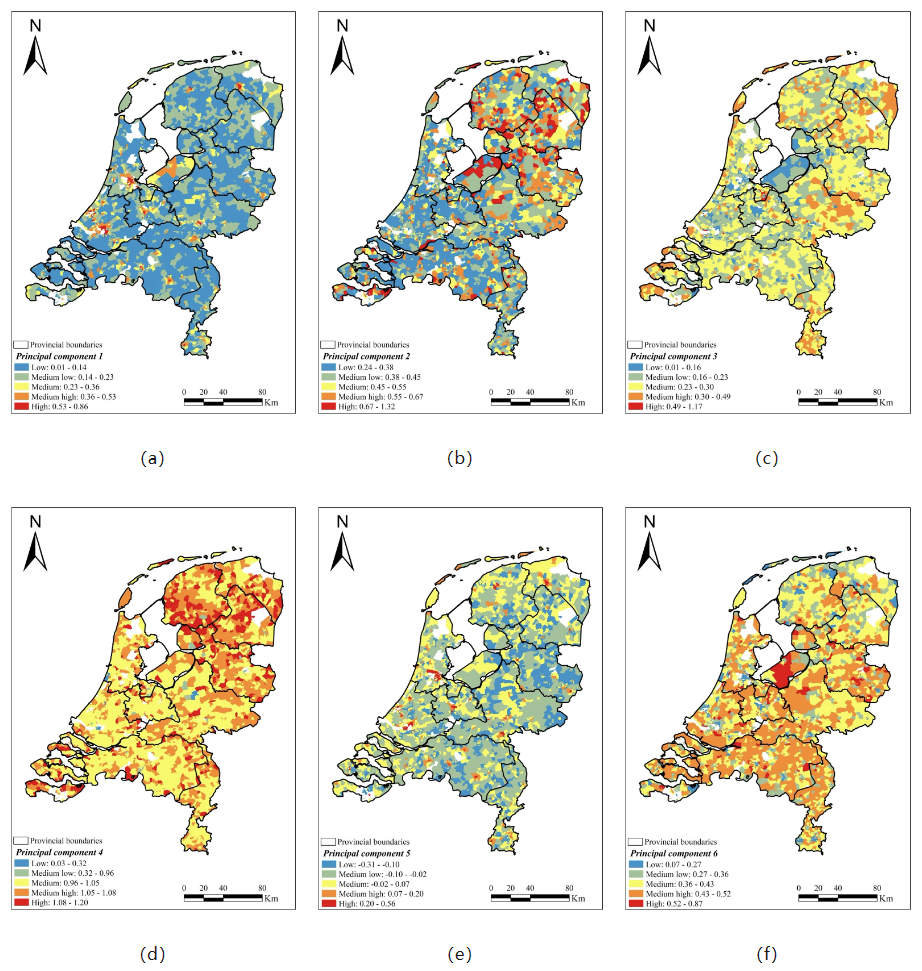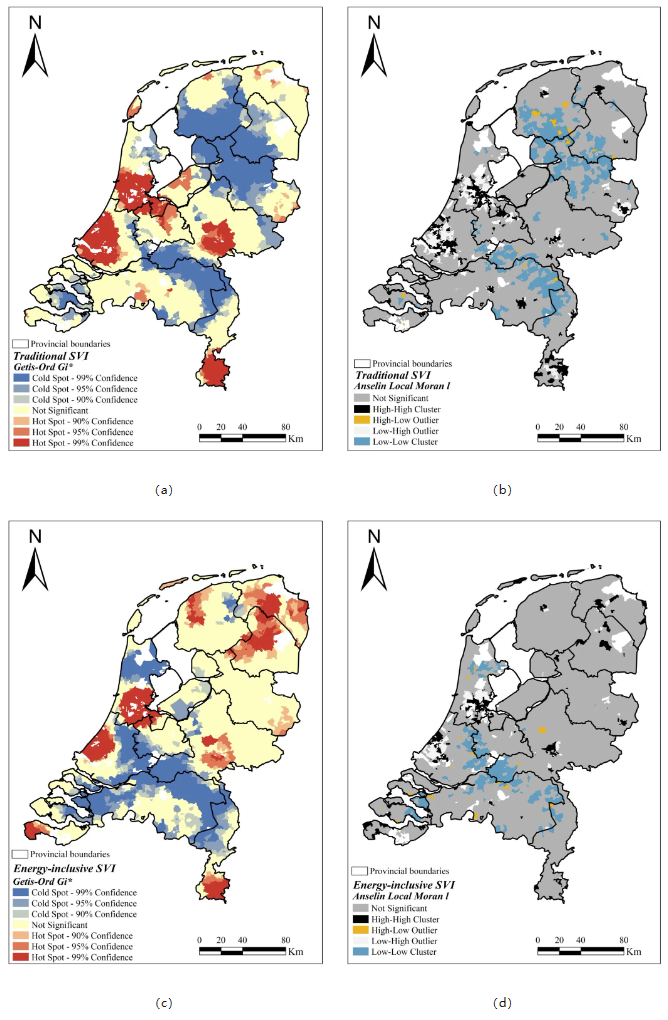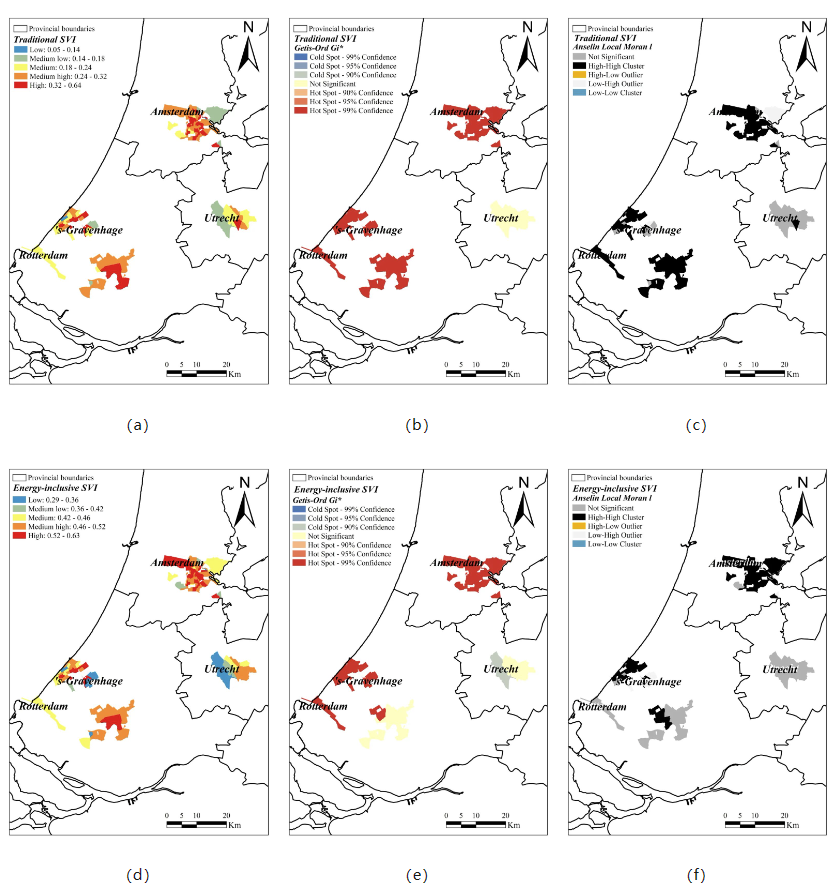学术快讯 | 利用能源韧性改进社会脆弱性评估,服务可持续城市未来治理
Abstract
A comprehensive vulnerability assessment is a scientific basis for the realization of the United Nations' sustainable development goals. Energy resilience plays a crucial role in mitigating social vulnerability due to disaster shocks. Often, energy infrastructure and services collapse after disasters. The recent Russia-Ukraine war has exacerbated Europe's energy crisis and social vulnerabilities, making it even more urgent to add energy resilience to vulnerability assessments. This paper takes the Netherlands as the study area for vulnerability assessment, constructs a new social vulnerability indicator (SVI) system supplemented with the energy element, and compares that with the traditional energy indicator system.
The results indicate that: 1) The introduction of energy indicators fills the gap of traditional SVI assessment. 2) Energy indicators reveal regional and spatial differences in potential social vulnerability in the Netherlands. 3) Energy-inclusive SVI demonstrates that uneven urbanization exacerbates risks and inequalities for vulnerable groups, with potential impacts on social vulnerability. Sustainable urban development requires the search for a recognized and coordinated approach to managing vulnerability across regions. The complementarity of energy indicators offers opportunities to provide a more comprehensive assessment of spatial patterns of social vulnerability, identify potentially vulnerable areas, enhance urban disaster resilience, and achieve sustainable urban development.
Keywords: Social vulnerability; Energy resilience; Open-source census data; Spatial disparities



Song, W., Li, Y., Cheng, J., Chen, R., Wu, J., & Jia, N. (2024). Enhancing social vulnerability assessment with energy resilience: A comprehensive study of the Netherlands. Sustainable Cities and Society, 103, 105251.